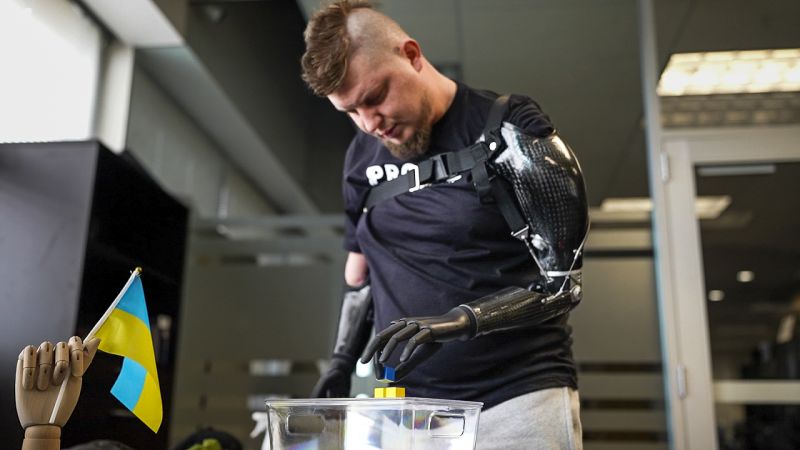Valera Kucherenko, a Ukrainian soldier who had already served one term in the army, joined back up when Russia invaded in 2022. However, in 2023, he lost both hands in a grenade attack. This is a common occurrence for Ukrainian soldiers, with an estimated 20,000 Ukrainians having lost limbs since the start of the war. Typically, such injuries would end military careers, but advancements in bionics are allowing some veterans to continue serving.
Kucherenko was fitted with two bionic hands from Esper Bionics, a Ukrainian-US based company focused on next-generation prosthetics. The Esper Hand, the first product from the company, incorporates artificial intelligence to help users regain functions lost from their limbs. AI can assist in learning user behavior and quickly choosing hand grips needed, as well as detecting muscle activity. CEO Dima Gazda believes that AI will be the next step in bionics, and the Esper Hand was built with AI capabilities in mind from the beginning.
The Esper Hand has 6 different motors, one for each finger and two for the thumb, allowing for each finger to move separately and mimic human hand movements more precisely. This level of precision, combined with AI assistance, is helping users regain their functions faster than ever before. Currently, 70 Ukrainian soldiers are serving with Esper Hands, but the demand far exceeds the supply, with around 170 people on the waitlist. As the fighting in Ukraine continues, the number of those in need of bionic prosthetics will only continue to increase.
The Esper Hand is just one example of how AI is disrupting industries and offering solutions that were previously thought impossible. In the field of bionic prosthetics, AI and machine learning are enabling patients who have lost limbs to regain functions, and even potentially gain new functions that were not possible with human limbs. Esper Bionics is at the forefront of this innovation, with their systems being built with AI capabilities in mind.
Gazda and his team worked for several years to perfect the Esper Hand, with the goal of creating a prosthesis that would help users not only regain functions lost from their limbs but also potentially improve upon them. AI in the hand can quickly learn user behavior and adjust hand grips accordingly, making it easier for users to adapt to the prosthetic. With the Esper Hand, users can perform daily tasks more efficiently and regain a sense of normalcy in their lives.
Despite the advancements in bionic prosthetics, the demand for such devices continues to grow, especially in war-torn countries like Ukraine where soldiers are in need of these life-changing technologies. As technology continues to evolve, the hope is that more resources will be allocated to help those in need of bionic prosthetics, allowing them to resume their duties and live fulfilling lives.













